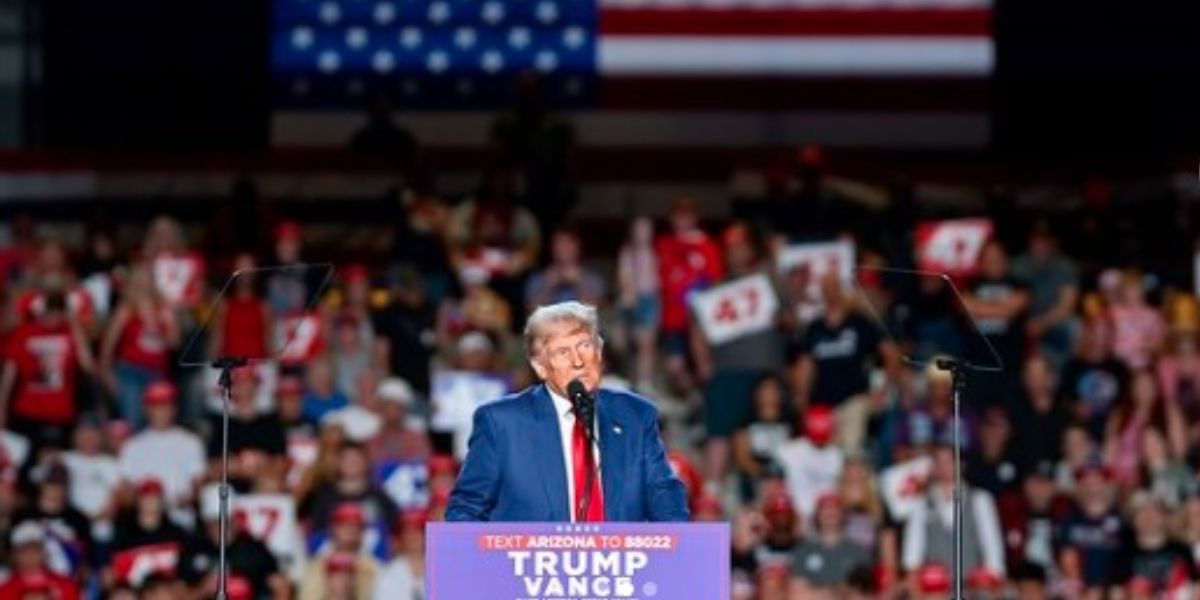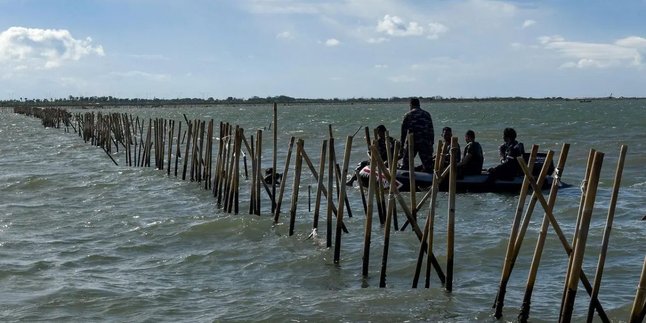Kapanlagi.com - Donald Trump's inauguration as President of the United States on January 20, 2025, is expected to shake the global economic landscape. Returning to power in the White House, Trump brings with him promises of new tariff policies that could alter the dynamics of international trade relations. Not only will trading partner countries feel the impact, but the entire global economy could also be affected.
The geopolitical uncertainty accompanying Trump's policy measures may create a new wave in global markets. Economic experts have warned that we may witness a slowdown in economic growth and inflationary pressures that could impact the standard of living for people in various parts of the world. In such situations, precious metals like gold could become an attractive option as a hedge asset.
Check out the complete review of the impact of Trump's inauguration on the global economy summarized by Kapanlagi.com on Monday (1/20).
1. Global Economic Uncertainty Due to Trump's Policies
The inauguration of Donald Trump brought a breath of fresh air as well as a storm of speculation about the future of the global economy. His proposed new tariff policy is predicted to become a barrier to already sluggish economic growth, with the World Bank forecasting stagnation at 2.7% by 2025—the lowest figure in recent years.
Trade tensions with partners such as China, Canada, and Mexico are the main triggers, where a tariff increase of up to 10% on US imports could erode global growth by up to 0.2%.
If these countries retaliate with similar measures, the impact could be much worse. This uncertainty has the potential to lower business and investment confidence, as well as threaten the living standards of the population amidst persistent inflation. In facing these global challenges, countries are expected to design careful economic policies.
"It has the potential to slow down global economic growth, through various tariff policies and strange ideas such as making Canada the 51st province, inviting Greenland to join, and controlling the Panama Canal," said Paramadina University Economist, Wijayanto Samirin, quoting Liputan6 Bisnis.
2. The Impact of the New Tariffs on the Global Market
Donald Trump is currently designing a new tariff policy that will impose burdens on imports from several countries, including economic giants like China, Mexico, and Canada. This move will not only pressure trading partners but also has the potential to trigger a surge in prices for goods in the United States, which in turn could worsen inflation and put pressure on the global economy.
Economist from the World Bank, Ayhan Kose, warned that trade restrictions often lead to trade wars that harm all parties, especially the countries that implement them.
With rising geopolitical tensions, the risks to the global market are increasing, and the manufacturing and commodities sectors are threatened. Weakening demand due to the global economic slowdown could affect commodity prices, including precious metals like gold.
"Increasing trade tensions between major economies is one of the biggest concerns for the global economy in 2025," said the World Bank's Deputy Chief Economist, Ayhan Kose, as quoted by the BBC.
3. Gold Prices: from Decline to New Record
Gold prices are expected to experience significant fluctuations throughout 2025. The editor of TheGoldForecast.com, Gary Wagner, projects that gold could reach a price of USD 3,000 per ounce by the end of the year. The main factors driving this increase are geopolitical uncertainty and the tariff policies implemented by Trump.
During his previous administration, Trump often used tariffs to pressure trading partner countries. This policy created inflationary pressures that supported gold as a hedge asset. With the war in Ukraine and ongoing conflicts in the Middle East, gold remains a safe choice for investors.
Additionally, the potential monetary policy of The Federal Reserve could also impact gold prices. Persistently high interest rates add pressure to the economy, thereby strengthening gold's appeal as a long-term investment.
"I see gold not only reaching USD 2,800, but my number has reached around USD 2,900, with a high of USD 3,000. What underpins my view are various stages of increases," said TheGoldForecast.com editor Gary Wagner in a report by Kitco News.
4. Implications for the Indonesian Stock Market: Potentially Harmful?
Concerns about Donald Trump's policies not only shook the United States but also had a significant impact on the stock markets of emerging countries, including Indonesia.
Leading up to Trump's inauguration, foreign investors began pulling funds from Blue Chip stocks, particularly in the banking sector, as evidenced by the decline in the prices of several banking stocks on the Indonesia Stock Exchange.
Moreover, with the rising yield of US bonds and the weakening of the rupiah exchange rate, this negative sentiment further undermines investor confidence. In the long term, Indonesia faces the challenge of strengthening macroeconomic stability to withstand external shocks.
"Why are foreigners pulling out? Because leading up to Donald Trump's leadership, the market is concerned that Trump's policies tend to be detrimental to emerging countries including Indonesia," said economist and capital market practitioner Hans Kwee, referring to ANTARA.
5. Strategies for Facing Economic Uncertainty
In facing the impact of Trump's inauguration, countries around the world are required to adopt smart and strategic economic policies. The World Bank emphasizes that sustainable economic growth is key to combating poverty and creating broader job opportunities.
To that end, investment in sectors with high growth potential must be increased, while economic diversification becomes an important step to reduce dependence on certain industries.
No less important, stability in monetary and fiscal policies will maintain market confidence. In facing increasingly complex global challenges, international cooperation becomes a necessity to achieve effective solutions.
6. Why do Donald Trump's tariff policies affect the global economy?
High trade tariffs increase import costs, reduce competitiveness, and slow down global growth.
7. How do tariffs impact gold prices?
Tariffs can create inflation, increasing the appeal of gold as a hedge asset, thus driving up prices.
8. What are the main risks to the financial markets under Trump?
Main risks include policy uncertainty, geopolitical tensions, and the potential for a global economic slowdown.
9. What steps can developing countries take to cope with Trump’s policies?
Developing countries can focus on economic diversification, enhancing macroeconomic stability, and strengthening international cooperation.
(kpl/rmt)
Disclaimer: This translation from Bahasa Indonesia to English has been generated by Artificial Intelligence.












